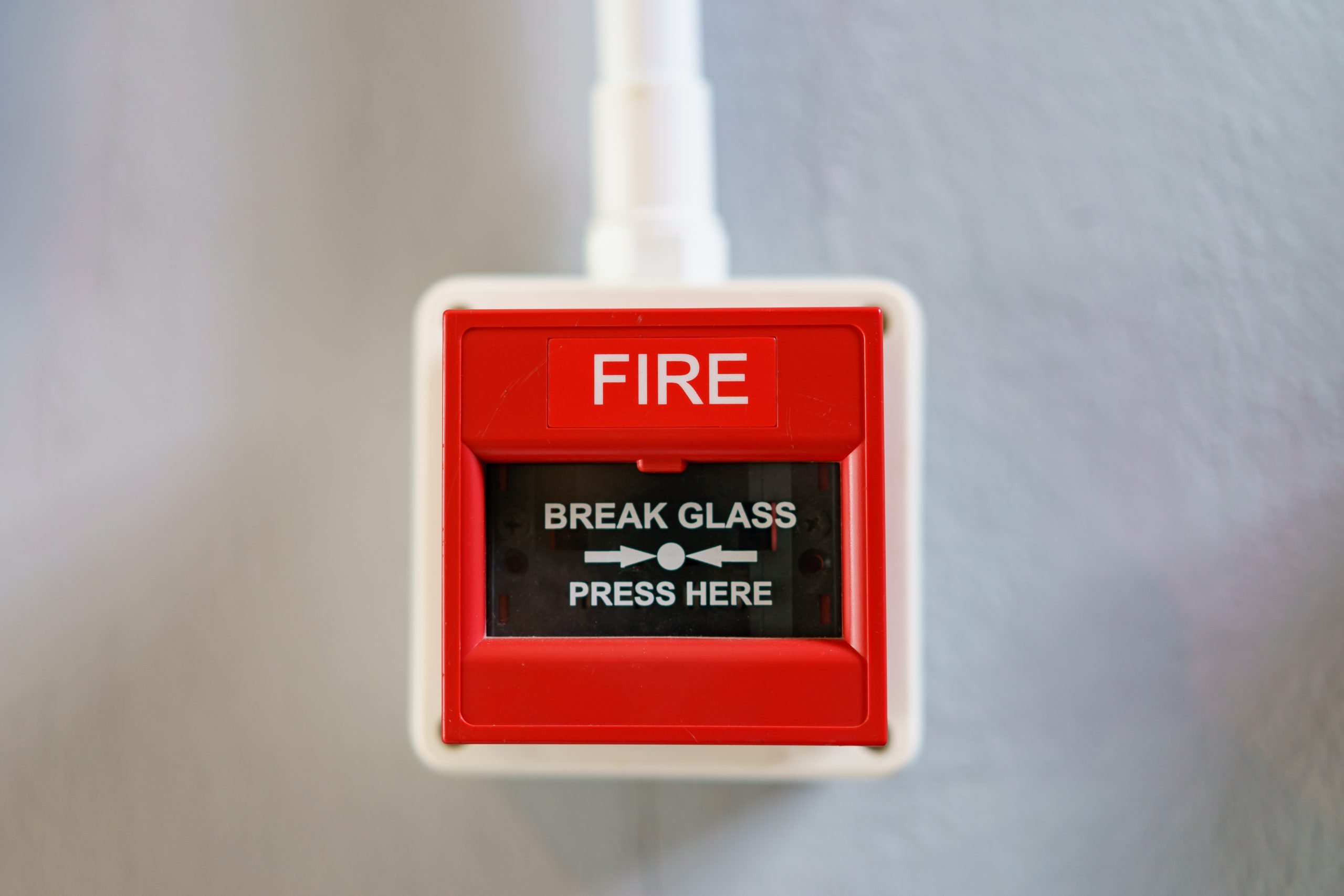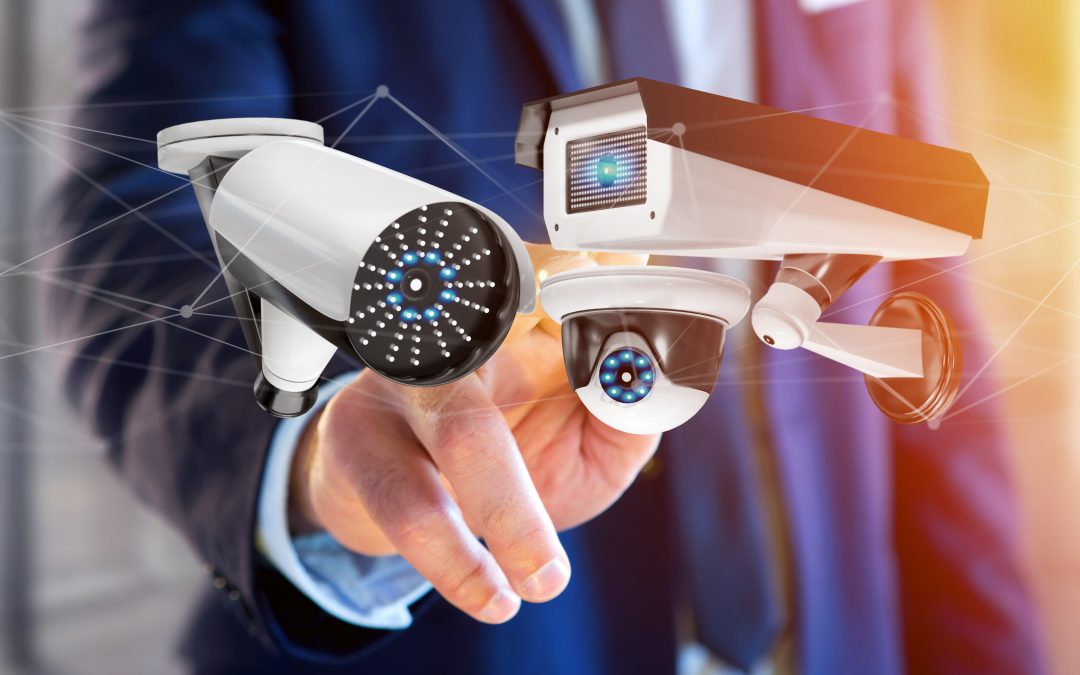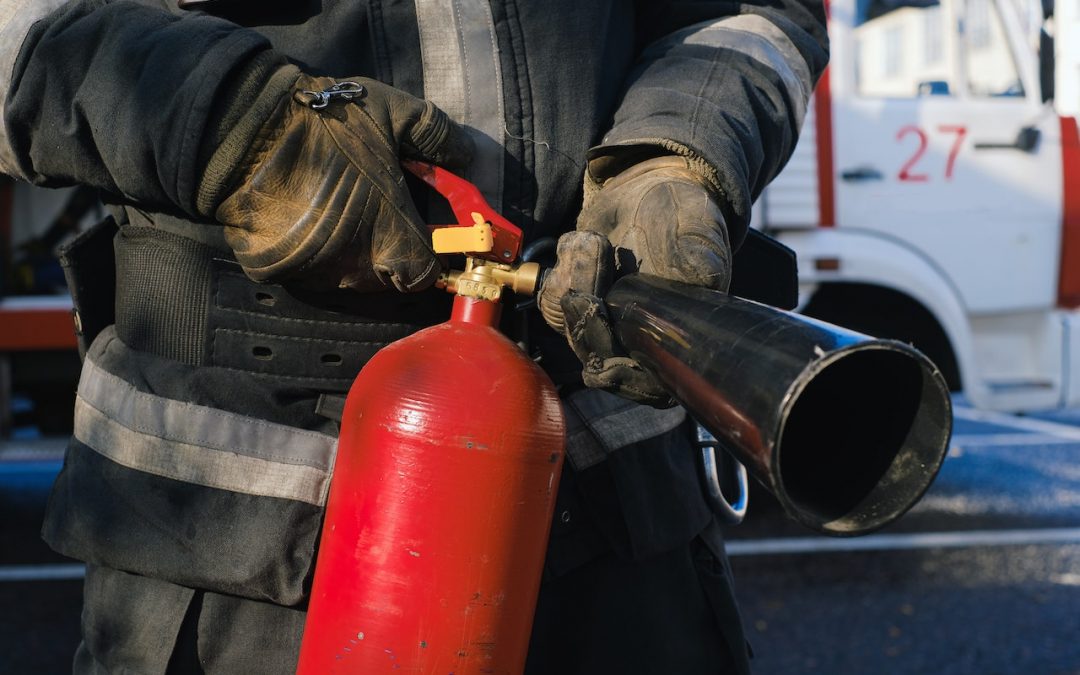The earlier you can detect a fire, the faster you can respond to prevent serious harm to people and property damage. This is why fire alarm systems are so critically important for property owners. Fire alarm systems prevent a small problem from becoming a big problem.
But beyond the need to protect people and property, fire alarm systems are required by law for commercial properties. If you own commercial property, you will need to install a fire alarm system that meets the regulations of both federal and state fire codes. This requires the help of professionals. You need to make sure your fire alarm system is up to fire codes.
Fire alarm systems have changed as technology has changed. We no longer rely solely on the old bells and pull alarm triggers that many of us are familiar with. Fire detection and smoke detection have kept pace with digital technology, and there are a great many options when you need to consider installing a fire alarm system.
What is a fire alarm system? What is the importance of fire alarm systems? And what are the different types of fire alarm systems? This guide will help you understand the components of fire alarm systems in South Florida.
What is a fire alarm system?
Fire alarm systems are a combination of detection devices, alert devices, and communication systems designed to alert you to an emergency so that you can take appropriate action to prevent further harm and damage.
Fire alarm systems are found in offices, factories, public buildings, schools, hospitals, and private residences. These systems have become so common that many people hardly take notice of the multiple features of fire alarm systems found throughout almost any building.
Fire alarm systems operate primarily with detection devices and alarms. Detection devices can be smoke detectors, CO2 detectors, heat detectors, and manual devices linked to an alarm. Alarms may be sirens, bells, and/or lights. The alarms are signals that people need to evacuate an area or the entire building.
Fire alarm systems are also set up to alert emergency responders. Modern fire alarm systems can communicate instantly with local fire departments to call for a response. Many modern fire alarm systems will also alert designated personnel within a business or organization.
Importance of a fire alarm system in South Florida
It is critically important to have an appropriate fire alarm system in your building in South Florida. The reasons it is important to have a fire alarm system in South Florida include:
Save lives and prevent injuries
The primary reason it is important to have a fire alarm system is to save people from harm. Smoke detectors, sirens, and strobe lights alert occupants of a building that there is an emergency so that they can take appropriate action before there is an immediate threat to life. Fire alarm systems give people time to evacuate in the event of an emergency.
Reduce property damage
Fire alarm systems alert you to a problem the moment it begins to occur. With the correct fire alarm system, you can take action to prevent a small problem from becoming catastrophic. This reduces the damage from fires and also reduces property losses.
Reduce recovery time
The more you can reduce property damage with a fire alarm system, the less time you lose after a fire occurs. By reducing the amount of damage from a small fire with the fast action you get with a fire alarm system, you cut the amount of time your production is shut down due to fire.
Insurance discounts
Most insurance companies offer reduced rates to property owners who have adequate fire alarm systems installed on their property. Most insurance companies require you to have a fire alarm system, but many will offer discounted premiums for the right type of fire alarm system.
Comply with fire codes
In addition to protecting people and your property with a fire alarm system, you will also be required by law to have the correct fire alarm system installed on your property. The State of Florida fire code will demand that you install the correct fire alarm system for the type of property you own. Failure to comply with the fire code could result in having your business shut down in South Florida.
Components of fire alarm system
Fire alarm systems consist of five basic components. These are:
Fire alarm control panel (FACP)
The fire alarm control panel is effectively the brains of the entire system. This is the central point that connects the detection devices, alarms, and notification systems. When a detection device is triggered, this signal is sent to the FACP which then signals the alarms. The FACP also sends alerts to the fire department and any other authorized personnel. Some fire alarm control panels will use a wired system that is connected to zones of detection. More modern fire alarm control panels use a radio or digital signal to set the entire alarm process in motion. Fire alarm control panels also have a full range of testing protocols to make sure your fire alarm system is working correctly.
Initiating devices
Initiating devices may be automatic or manual. These are the devices that signal that something has been detected.
Manual initiating devices are the pull station devices many of us have seen in public buildings. These devices can be pulled to signal that someone has seen fire or smoke, and this will send a signal to the fire alarm control panel to initiate the fire alarm system.
Automatic initiating devices include things like smoke detectors and gas and flame detectors. These are automatically triggered when they detect something and begin initiating the fire alarm system. Automatic initiating devices are either addressable or non-addressable. Addressable initiating devices will direct the system to a specific location where something has been detected. Non-addressable initiating devices will direct the system to a zone.
Notification devices.
Notification devices notify everyone in the building when a fire or emergency has occurred. These can be old-fashioned alarm bells, sirens, strobe lights, or a combination of strobe lights and alarms Modern fire alarm systems can be programmed to provide different types of notifications.
Primary power supply
The primary power supply will be the standard 120 or 240-volt AC power source built into your building.
Backup power supply
It is crucial to have a backup power supply because fires and other emergencies can interrupt the main power supply. The backup power supply will consist of a 6- or 12-Volt battery that will keep your system operational if the main power supply is interrupted.
Types of Fire Alarm Systems
Conventional Fire Alarms
Conventional fire alarm systems are the most traditional systems. These are the type of commercial fire alarm systems that make no distinctions between the signals they receive from the various detection devices. Conventional fire alarm systems are best suited for sites where it is easy to determine the nature of the device signal. For example, access to smoke alarms and heat sensors is easy and you would have no real issue figuring out exactly what is happening and how to respond.
These devices require significant installation since each device is wired directly to the central fire alarm control panel. This means you will need to install a lot of conduits, and the installation process requires a lot of labor. Conventional commercial fire alarm systems are limited to the extent that you can only connect a certain number of devices. These types of systems work well for smaller operations with open spaces.
Conventional commercial fire alarm systems generally do not cost as much as other types of systems. They are also fairly simple and straightforward to operate. Conventional commercial fire alarm systems are great for more traditional commercial operations with open spaces.
Addressable Fire Alarms
Addressable fire alarm systems are different from conventional fire alarm systems in that they make it possible to determine the exact detection device and its precise location. Thus these are called addressable because you can address each site that sends a signal. Addressable fire alarm systems are great for large operations where it can be difficult to physically investigate the source of a signal. Large buildings can make it difficult to physically investigate individual detection devices in a timely manner. Addressable fire alarm systems offer you immediate information in the event that a detection device is triggered and sends a signal, and this makes it easier to take appropriate action.
Whereas conventional fire alarm systems are built on individual wires from each detection device to the fire alarm control panel, addressable fire alarm systems are wired on a loop. Each device along the circuit is tied into this loop. This means each device can operate independently and even if the loop is interrupted, it can still receive and send signals from one end or the other.
One of the chief benefits of addressable systems is that it helps save time when a device sends a signal. Because each device can be pinpointed at the control panel, response times are fast. This helps stop issues before they become bigger problems. The disadvantage of addressable fire alarm systems is that they are expensive. The cost of installing an addressable fire alarm system is much higher than that of a conventional fire alarm system.
Hybrid Fire Alarms
Hybrid fire alarm systems are sometimes called analog addressable fire alarm systems. The hybrid does exactly what it sounds like: it combines features of the conventional fire alarm system with those of an addressable fire alarm system. Hybrid systems use localized zone detection systems, but it combines monitoring options that are associated with the addressable fire alarm system.
What sets the hybrid fire alarm systems apart is that they use isolated detection devices just like a conventional system. But the signals sent by each detection device are converted into a digital signal which allows the control panel to know where each signal comes from, and which detection device sent the signal. You can have the benefits of detection devices in all zones of protection combined with the benefits of an addressable system and the ability to react quickly and accurately.
Certifications required for fire alarm systems in South Florida
The State of Florida requires that individuals obtain a Fire Alarm Service Agent Certification (FASA) to install or inspect fire alarms in South Florida. The FASA course is recommended for all technicians, service personnel, installation personnel, sales staff, and business owners.
Fire alarm system installation process in South Florida
Fire alarm systems are regulated by law in South Florida. The process of installing fire alarm systems is also regulated by law in South Florida. If you own property and are in need of a fire alarm system, it is in your best interest to hire qualified and certified professionals to install your fire alarm system in South Florida.
Which type of Fire Alarm System is Best?
The top five fire alarm systems include:
- Siemens Desigo Mass Notification – Best for Emergency and Event Response
- Honeywell HS-81 – Best for Industrial Fires and Gas Leaks
- Kidde VM Series – Best for Customizing Your Alarm Systems
- Bosch Fire Alarm Systems – Best for Advanced Detection Methods
- Kidde FX Series – Best for Small Buildings
Helios Security Systems has the technical knowledge and certified staff that can properly install fire alarm systems in your building or business. Our trained and licensed staff can walk you through the options for fire alarm systems and direct you to the kind of system that will work best for your needs. Whether you need a conventional fire alarm system that meets basic needs and concerns, or you require advanced fire alarm systems that can handle multiple buildings and secure areas, Helios Security Systems can get you the system that works best for you.
Conclusion
As with everything else, fire alarm systems have advanced with changes in technology. Digital technology has made fire alarm systems far more advanced than the older types that worked primarily with manual initiating devices and alarm bells. No matter the technology, fire alarm systems remain a crucial feature for any property.
Fire alarm systems first and foremost protect people from harm and loss of life. The best way for individuals to protect themselves in the event of a fire or other emergency is with early warning systems that allow them to evacuate ahead of danger. Fire alarm systems are the best way to prevent injuries or even loss of life in the event of an emergency.
Fire alarm systems also protect your property and your assets. The best way to prevent property damage and loss is to detect problems before they become catastrophic. Early detection and early warning allow you to take action to stop problems before they escalate.
Finally, fire alarm systems keep you in compliance with the law. Buildings and other types of properties are subject to federal and state fire codes that demand that you have the correct fire alarm system in place. To ensure that you protect people, and property, and comply with the law, consult with the professionals at Helios Security Systems to get set up with the correct fire alarm system for your property.




